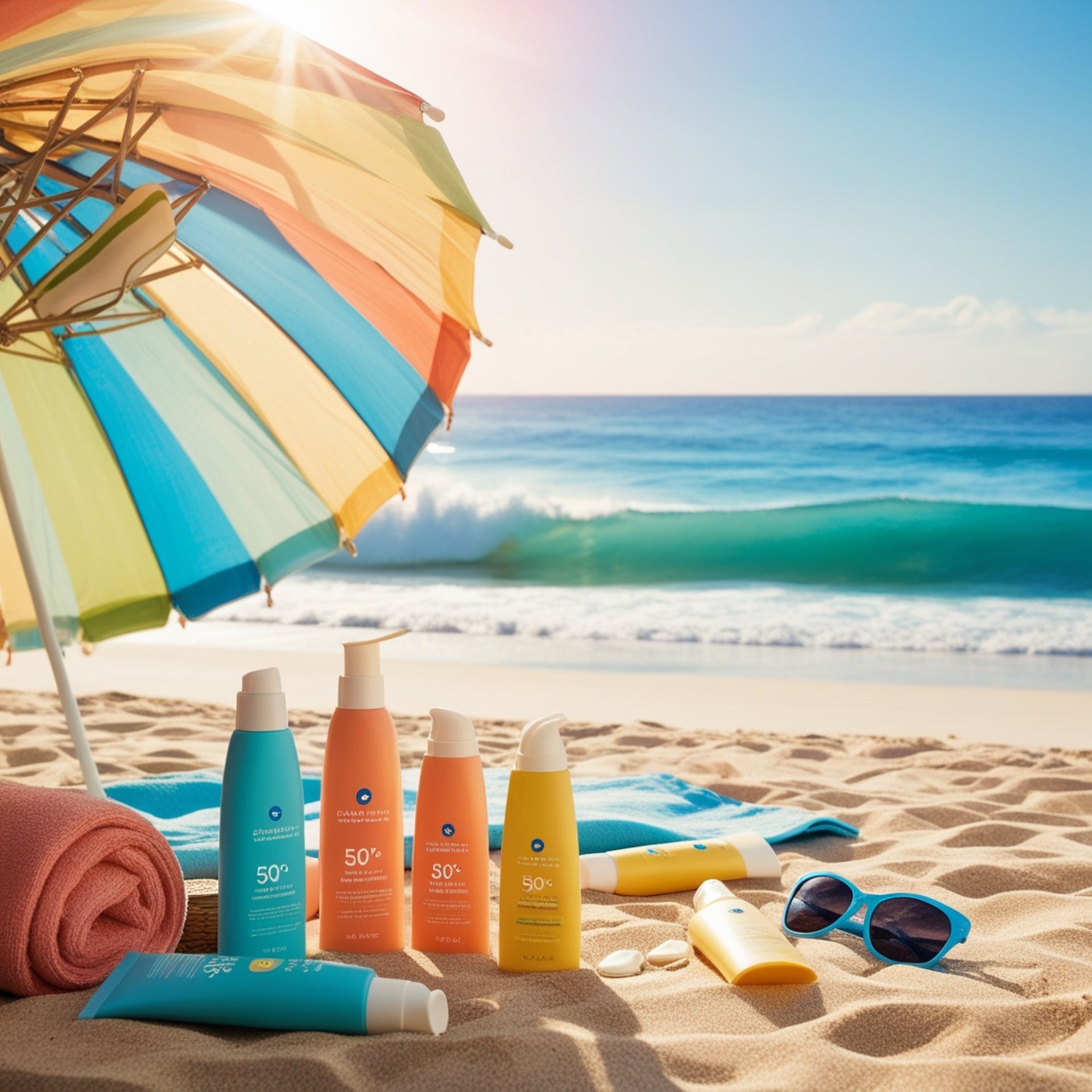
Your Skin's Daily Bodyguard: Why Sunscreen Is the Ultimate Anti-Aging Secret
4 min read
Here's a shocking fact: one in five people will get skin cancer by age 70. Yet most of us still treat sunscreen like it's optional. However, slapping on SPF every single day isn't just smart—it's absolutely essential.
Meet Your Skin's Biggest Enemies: UV Rays
Think of the sun as shooting invisible arrows at your skin all day long. These "arrows" come in different types:
UVA Rays - The Sneaky Aging Villains These bad boys penetrate deep into your skin, breaking down the collagen that keeps you looking young and firm. They're like that friend who shows up uninvited—present 365 days a year, rain or shine, and they even sneak through windows! UVA rays make up 95% of all UV radiation hitting your skin.
UVB Rays - The Burn Masters These are the ones that turn you lobster-red at the beach. They're strongest during summer and midday, but don't let that fool you—they're working on damaging your skin's DNA even when you don't see immediate burns.
UVC Rays - The Blocked Bullies The most dangerous ones, but lucky for us, Earth's ozone layer blocks them completely. (Let's keep it that way!)
The Game-Changing Research That'll Make You Never Skip Sunscreen Again
Ready for some mind-blowing numbers? Scientists have proven that daily SPF 15 use can slash your skin cancer risk by 40% and melanoma risk by 50%. That's like having a superhero shield for your face!
But here's what really got my attention: studies following people for over 10 years found that those who used sunscreen regularly looked significantly younger than those who didn't. We're talking measurable differences in wrinkles, age spots, and skin texture.
Why Mineral Sunscreen Is Your Skin's Best Friend
Not all sunscreens are created equal, and here's where I get excited about mineral formulas. The FDA has given only two ingredients the gold star for being both safe AND effective: zinc oxide and titanium dioxide.
Here's the fascinating science: While everyone thinks mineral sunscreens work like tiny mirrors, recent research shows they only reflect about 4-5% of UV rays. The latest studies confirm that "titanium dioxide and zinc oxide provide UV protection primarily via absorption of UV radiation and not through significant reflection or scattering."
Think of them as UV-absorbing shields that sit on your skin's surface and neutralize harmful rays through their unique semiconductor properties. No waiting time, no chemical reactions penetrating your skin, just instant protection the moment you apply it.
Zinc Oxide: The Broad-Spectrum Champion ZnO has a broad UVA-UVB absorption curve, making it excellent for comprehensive protection. However, it's important to note that no single ingredient provides "complete" blocking - that's why proper application and reapplication matter.
Titanium Dioxide: The UVB Specialist TiO2 is more effective in the UVB range, while ZnO excels in UVA protection. The combination of these particles ensures broad-band UV protection.
The Safety Win While chemical sunscreens can irritate sensitive skin, mineral sunscreens are gentle enough for babies and people with the most reactive skin types.
The Real Talk About Skin Aging
Here's something that might shock you: 80% of what we call "aging" is actually sun damage. Those fine lines, dark spots, and sagging? That's not time—that's UV rays breaking down your skin's support structure from the inside out.
Every unprotected minute in the sun triggers a chain reaction that destroys collagen (your skin's bounce) and elastin (your skin's snap-back ability). Mineral sunscreen stops this destruction before it starts.
Busting the Biggest Sunscreen Myths
Let's clear the air: sunscreen does NOT cause skin cancer. This myth has been thoroughly debunked by every major health organization. What DOES cause skin cancer? The sun. Full stop.
The real question isn't whether sunscreen is safe—it's whether you can afford to go without it.
Your Foolproof Sunscreen Game Plan
How Much? Use about a quarter teaspoon just for your face. Most people use way too little and wonder why they still burn.
What Type? Look for "broad-spectrum" on the label, which means it blocks both UVA and UVB rays. Mineral sunscreens with 15-25% zinc oxide are your best bet.
When? Every. Single. Day. Even if you're staying inside (UVA rays laugh at windows), even if it's cloudy (80% of UV rays penetrate clouds), even in winter.
Reapplication Reality Check: Every 2 hours, no exceptions. Set a phone reminder if you have to!
The "Hidden" Areas Everyone Forgets
Don't let these spots sabotage your sun protection game:
Behind your ears
Back of your neck
Tops of your feet
Your lips (yes, they need SPF too!)
That little spot between your eyebrows
The Money Talk: Prevention vs. Treatment
Here's some perspective: treating advanced skin cancer can cost over $100,000. A year's worth of daily sunscreen? Less than $50. That's the deal of the century right there.
Plus, think about all the money you'll save on anti-aging treatments, facials, and procedures when your skin stays naturally youthful thanks to consistent sun protection.
The Bottom Line: Your Daily Non-Negotiable
The science is crystal clear: sunscreen prevents skin cancer, stops premature aging, and keeps your skin healthy for decades to come. It's not just skincare—it's health insurance for your largest organ.
Mineral sunscreens with zinc oxide and titanium dioxide offer the safest, most effective protection available, backed by decades of research and FDA approval.
Your skin is with you for life—treat it like the precious asset it is.
Every day you skip sunscreen is a day you're gambling with your health and your appearance. The good news? It's never too late to start protecting what you've got and preventing future damage.
Ready to make sunscreen your daily non-negotiable? Start with the Celestial Skincare Mineral Sunscreen SPF30, WITH OR WITHOUT TINT.